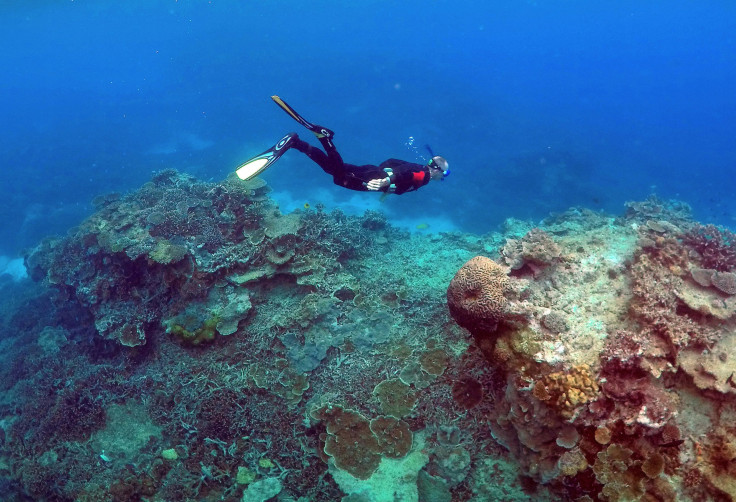A Large Sheet Of Floating Volcanic Rock May Help Save The Great Barrier Reef

A massive floating sheet of pumice rock that is drifting towards Australia can help replenish the corals of the Great Barrier Reef and other marine life that has been lost as a result of climatic change in the past two years, CNN reported.
According to experts, the huge floating piece of volcanic rock, which resembles a raft, could bring with it new marine life that would help restore some of the lost ones, especially the corals at the Great Barrier Reef. The sheet of volcanic rock, believed to be of the size of Manhattan, was spotted first on Aug. 9 after an underwater volcanic eruption.
The rocks are moving at a speed of 10-30 kilometers per day, with its direction largely affected by ocean currents, waves and the wind. At this speed, it would reach the Australian shore within the next 7-10 months.
Log into Facebook to start sharing and connecting with your friends, family, and people you know.
The “gray floating matter” was spotted by the ROAM crew of Michael and Larissa Hoult who made contact with the pumice rock after being at sea for ten days.
"The rocks were kind of closing in around us, so we couldn't see our trail or our wake at all. We could just see the edge where it went back to regular water -- shiny water -- at night," they told CNN.
The pair explained that the pumice rocks, which ranged from the size of a marble to that of a basketball, were porous and floated like an iceberg, with 10 percent above water and 90 percent below.
"It was a bit of a mystery, we didn't know how deep it was, if we were sailing over a volcano that was active at that moment. It looked almost like there was more coming up, bubbling up from underneath," they added.
Scott Bryan, a professor the Queensland University of Technology who found that pumic rocks are ocean’s way of redistributing diverse sea life, said, when the ‘raft’ reaches the Great Barrier Reef, it will bring with it diverse colonies of corals, barnacles and more.
"Each piece of pumice is a vehicle for something to attach and grow and be transported across the ocean. We will have millions to billions of individuals of tens of different species all arriving en masse along our coastline, all healthy and potentially finding a new home," he told CNN.
According to Bryan, while animals like crab can move on to a new habitat and reproduce with ease, it was much more challenging in the case of corals. The diverse corals that attach itself to the pumice rock would be the perfect way to replenish the reef.
A mass bleaching caused by the marine heatwaves had killed about half the corals in the Great Barrier Reef in 2016 and 2017.
© Copyright IBTimes 2024. All rights reserved.





















